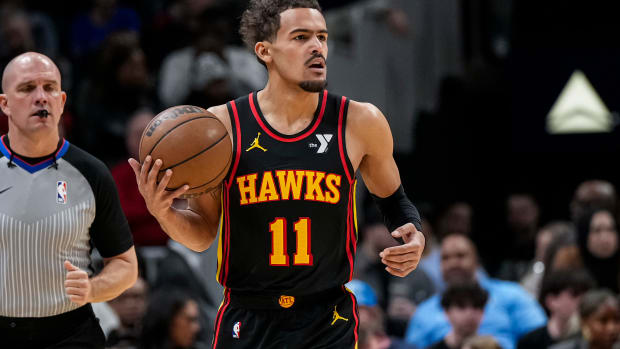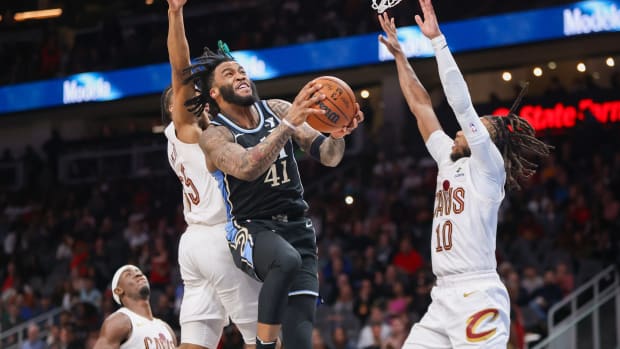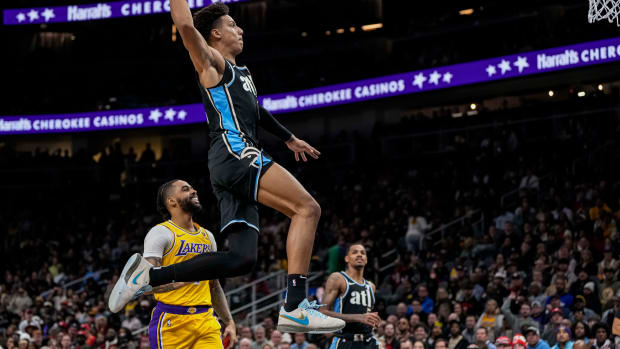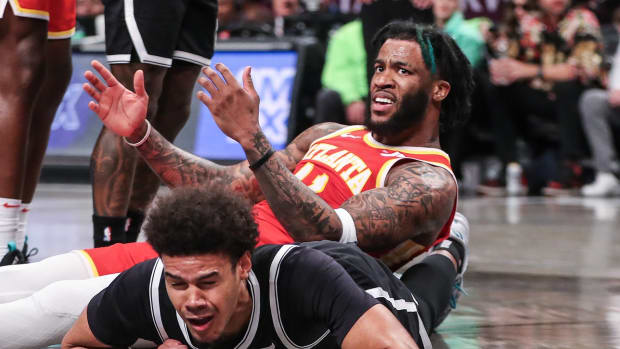Where the NBA Stands Nearly Two Months After Suspending Its Season
Last Friday, the NBA announced it would postpone this month’s draft lottery and combine -- a decision less noteworthy for the news itself than for what it portends for a league stuck in limbo.
The NBA is expected to eventually do the same for the draft itself, and with it, possibly the entire basketball calendar. In a conference call with the league’s Board of Governors on Friday, NBA officials discussed delaying the start of the 2021 season until December, according to ESPN’s Adrian Wojnarowski. That would give teams a chance to play more games in front of fans rather than in empty arenas, though it's unclear whether large gatherings will be allowed or safe by that point. At this point, the league may have no other option. If it can somehow complete the 2020 season, the NBA will likely stretch into July, August, or September, leaving it with little choice but to push back the start of the following season to give players time to recover and prepare.
Friday's report does not bode well for the future of the current season -- which has been suspended since March 11 -- either. Even the idea of reopening practice facilities in areas with loosened stay-at-home orders met pushback from owners, GMs, players, and fans. Atlanta GM Travis Schlenk said that the Hawks would not open their practice facility even if the NBA and Georgia government allowed them to. The league does not want to risk incentivizing players in cities still imposing strict social-distancing measures to travel to states like Georgia, where the state government has allowed businesses to reopen, just to work out. Eventually, the league pushed the date on which facilities could open from May 1 to May 8. Starting back up before it’s safe to do so would be highly irresponsible on the NBA’s part, and, given its reputation as a progressive, forward-thinking league, would likely trigger a PR hit as well.
The NBA has reportedly considered holding the playoffs in “a quarantine of connected casino hotels and arenas” in either Las Vegas or at Disney World, but those ideas don't seem to have gained significant traction and would likely be a drastically truncated version of the NBA’s typical playoff format. Continuing with any kind of postseason would almost certainly involve playing without fans, keeping players isolated in between games, and repeatedly testing players for COVID-19. According to Wojnarowski, that would require the league to procure approximately 15,000 testing kits, and NBA commissioner Adam Silver "has publicly and privately insisted he couldn't abide his league gobbling up tests to resume a basketball season if the general public and medical professionals are without mass access to tests."
The CDC and public health officials have said that there could be a second outbreak of COVID-19 in the fall, assuming the current one eventually subsides. Until a vaccine for the disease is developed, it’s just hard to see how the NBA -- or any professional sports league -- could safely and comfortably resume playing, especially in front of large crowds.
There are several complex financial webs to be untangled here, and Silver also seems to be bracing for significant financial impact beyond this year. The NBA stands to lose billions of dollars if the 2020 season doesn’t continue, which would have ramifications for players and teams over multiple years. Playoff gate revenue and TV money account for a significant portion of the league’s basketball-related income, which determines the salary cap and revenue share among the 30 teams. Before the coronavirus outbreak, the cap was projected around $115 million in 2021 -- a nearly $6 million increase from this season -- but likely won’t rise that far after the revenue losses from this pandemic, and could even decrease for the first time since 2010.
The collective bargaining agreement between the Players’ Association and Board of Governors has a force majeure clause that would return player salaries from cancelled games to the organizations, but the league has yet to take that action. Wojnarowski reported last week that the NBA has increased its credit facility to $1.2 billion to protect cash flow to guard against financial losses.
The NBA has, understandably, tried to come up with any possible alternative to cancelling the season. This year arguably held more intrigue and uncertainty than any of the last four seasons, and the central teams and players in the playoff conversation had far more than just a championship opportunity at stake. The absence of a postseason could have wide-ranging effects on player legacies and franchise trajectories. All parties -- players, coaches, fans, owners, and league officials -- undoubtedly want to see the year continue safely, and Silver is reportedly committed to the idea of crowning a 2020 NBA champion. Each development in the situation, however, suggests that he might be better off focusing not on how to salvage this season, but on how to preserve the next one.




